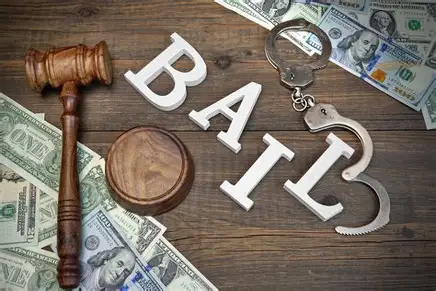
New Delhi, May 29, 2025 – The Supreme Court, in a judgment delivered by Justice Vikram Nath & Justice Sandeep Mehta, ruled that the bail can be cancelled of an accused on grounds related to misrepresentation, or if a new and serious concern arises, the nature and gravity of the offense justify the likelihood of revocation of bail.
Facts:
On 2nd May, 2021, after the state election result, a Hindu man in Gumsima Village, who was a supporter of the Bharatiya Janata Party (BJP), was attacked by the supporters of the ruling party. As the complainant and a few more villagers campaigned for the BJP before the state election, they also received threats. Before the election, a bomb was thrown at the complainant’s tea stall. On the incident day, a group of 40–50 armed individuals, allegedly led by Sekh Mahim, a local political leader affiliated with the ruling party, launched a violent attack on the complainant’s home. The assailants were carrying weapons, his house was vandalized and looted, and his wife was molested. To prevent further sexual assault, the complainant’s wife poured kerosene on herself and threatened to set herself on fire, which caused the attackers to flee.
For any queries or to publish an article or post or advertisement on our platform, do call at +91 6377460764 or email us at contact@legalmaestros.com.
The officer-in-charge declined to file a formal complaint despite the family’s attempts to report the incident to the Sadaipur Police Station. Following the election results, similar incidents happened, but the police failed to report them. An FIR (RC0562021S0051) was filed on December 16, 2021, after the Calcutta High Court ordered the Central Bureau of Investigation (CBI) to look into these cases. On November 3, 2022, the defendants were taken into custody and placed under judicial remand. For the offenses covered by Sections 34, 148, 149, 326, 354, 511, read with 376D and 450 of the IPC, the CBI filed a charge sheet.
Appellant:
The appellant argued that the High Court granted bail to respondents due to their political influence, which hindered the registration of FIRs for ghastly crimes, preventing a fair trial. The CBI was directed to investigate murder and rape cases, but the respondents registered the FIR, arresting them and allowing charge-sheet filing. The accused respondents allegedly influenced the trial and failed to appear multiple times, making it difficult to frame charges.
Respondent:
The counsel representing the accused persons, Mr. Banerjee, argued that the High Court correctly analyzed the fact matrix and granted bail to the respondents. He argued that there was no specific role assigned to the respondents in the FIR or the statement of witnesses by the investigating officer, and therefore, there was no justification for entertaining appeals and interfering with the well-reasoned order passed by the High Court. He urged the court to dismiss the appeals.
For any queries or to publish an article or post or advertisement on our platform, do call at +91 6377460764 or email us at contact@legalmaestros.com.
Judgment:
The Supreme Court cancelled the bail granted by the Calcutta High Court, stating that the considerations to grant the bail and cancellation are entirely different. It cited that the reason for the cancellation is that the allegations against the accused are so grave that the same may hurt society at large. It is likely to create a sense of fear and terror amongst the society, or that the accused, while on bail, may abscond or tamper with the prosecution evidence. It directed the accused to surrender within two weeks and ordered the trial court to conclude the trial within six months, with adequate protection provided to the complainant and witnesses so that they can freely appear and depose at the trial without any fear or apprehension.
Any stay orders by any higher forum, including the High Court, will be vacated. The Home Secretary and Director General of Police will ensure proper protection for the complainant and witnesses. Any violation of this direction can be reported to the court for appropriate action. The observations made in this judgment and the orders of the High Court will not prejudice the trial. Appeals are allowed, and any pending applications will be disposed of.
Legal Analysis:
The Supreme Court’s decision to cancel bail rests on well-established principles from cases like Puran v. Rambilas (2001) 6 SCC 338, which held that bail can be revoked if granted on irrelevant grounds or if new, serious concerns arise. The court emphasized that the nature and gravity of the offense—politically motivated violence and attempted sexual assault—justified interference. Similarly, in State of U.P. v. Amarmani Tripathi (2005) 8 SCC 21, it was clarified that the likelihood of the accused tampering with evidence or influencing witnesses is a valid reason to deny or cancel bail. The Court also noted the failure of local police and the accused’s attempts to obstruct the trial, reinforcing the need to protect the integrity of the justice process, as seen in Zahira Sheikh v. State of Gujarat (2004) 4 SCC 158. Thus, the ruling aligns with precedent that prioritizes fair trial rights and public confidence over bail when serious offenses and misuse of power are involved.
For any queries or to publish an article or post or advertisement on our platform, do call at +91 6377460764 or email us at contact@legalmaestros.com.






![Research Assistantship @ Sahibnoor Singh Sindhu, [Remote; Stipend of Rs. 7.5k; Dec 2025 & Jan 2026]: Apply by Nov 14, 2025!](https://legalmaestros.com/wp-content/uploads/2025/11/Gemini_Generated_Image_s0k4u6s0k4u6s0k4-768x707.png)
![Karanjawala & Co Hiring Freshers for Legal Counsel [Immediate Joining; Full Time Position in Delhi]: Apply Now!](https://legalmaestros.com/wp-content/uploads/2025/11/Gemini_Generated_Image_52f8mg52f8mg52f8-768x711.png)